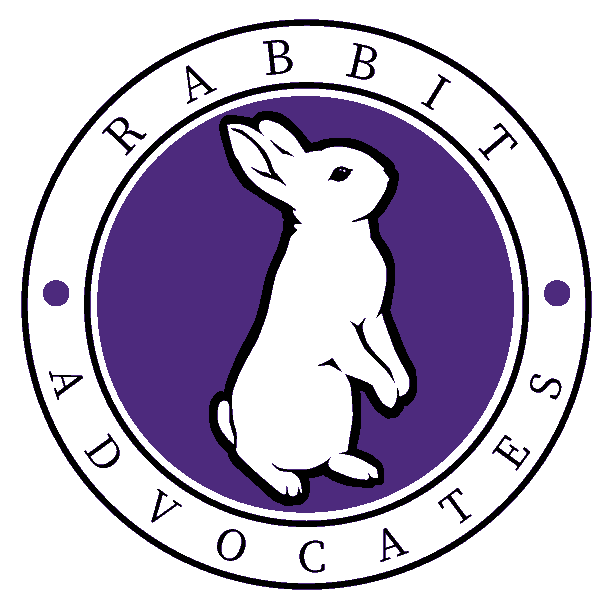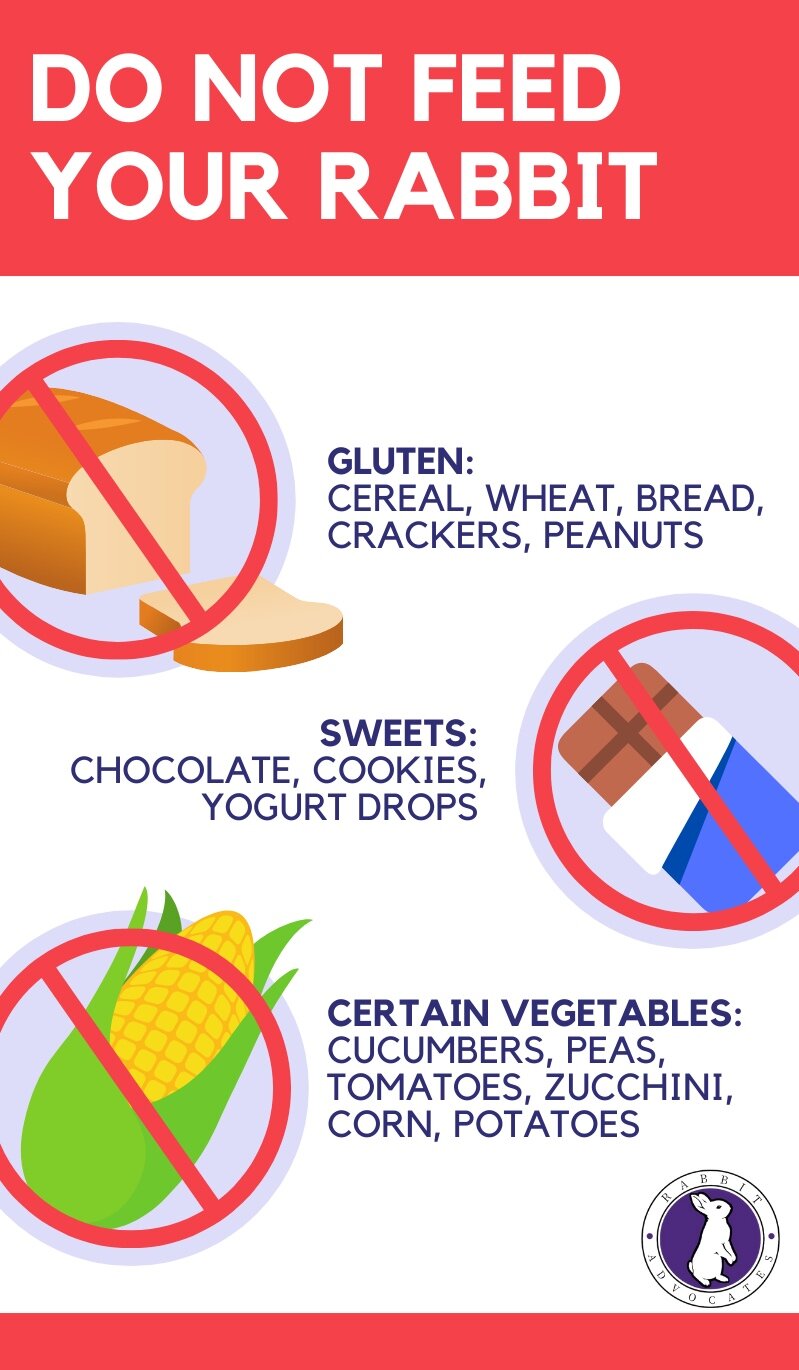Rabbit Diet
Hay
Timothy and/or other grass hay should be available at all times. Hay is the most important part of your rabbit's diet. The high fiber content of hay promotes a healthy bowel, while the chewing action helps keep teeth from growing too long. Alfalfa hay is too high in protein for adult rabbits and leads to obesity and bowel upset. Hay can be purchased from the Rabbit Advocates Hay Program, a feed store, pet store or a local farmer. Do not store hay in an airtight container. Always check for mold or insects before feeding as hay is a natural, agricultural product.
Water
Fresh water must be available in a heavy glass or ceramic bowl at all times and should be changed daily. We do not recommend using water bottles, as these can get blocked and are harder to keep clean. If your rabbit is accustomed to using a water bottle, also provide a bowl full of fresh water.
Leafy Greens
Vegetables and greens should be introduced slowly adding one type at a time to avoid diarrhea or other bowel upset. Monitor your rabbit for signs of gut upset.
Always wash vegetables and greens to remove pesticides which can be toxic to your rabbit. Organic greens and herbs are best, but still need to be thoroughly washed.
Refresh washed greens in a container with cold water in the refrigerator to help boost hydration and keep bunnies cool in hot weather.
Be careful with “foraged” greens and veggies of unknown origin as they may contain pesticides, herbicides, and/or parasites, and tend to be higher-risk for potential RHDV2 contamination.
Most veterinarians recommend that caregivers not give fresh greens to baby bunnies unless the babies have been living outdoors prior to their rescue and have acclimated to fresh foods.
Pellets
BABIES: Rabbits from 1-6 months of age should be fed unlimited pellets as long as they are also eating a sufficient amount of hay and their stool looks good.
ADULTS: Adult rabbits should be fed approximately 1/4 cup of pellets per day per 4 pounds of body weight. Many bunny parents give half of this amount in the morning and half in the evening since excitement about food/pellets can be a good barometer of general bunny well-being.
Protein level 14-16% to help prevent obesity.
Fiber 18% to promote a healthy bowel.
Fat 3% or lower; 1.5% is better.
Never feed your rabbit pellets, mixtures, or treats with seeds, nuts, corn, dried fruit, or multi-colored pieces.
Monitor your rabbit's weight to determine the correct amount, and consult a veterinarian if you have questions or concerns. A lot of pellets contain “hidden” sugars, such as molasses, that can upset the gastro-intestinal tracts of sensitive and/or older bunnies. Pellets can be stored in an airtight container for up to six months and longer if stored in the freezer.
Treats
For adult rabbits in good health, occasional treats include fruit in tiny amounts, Twinklenose or Oxbow-style bunny treats (made from hay and oats), and papaya digestive tablets.
Do not feed rabbits crackers, cereals, corn, bread, nuts, seeds, yogurt drops, or other sweets because they can cause weight gain and life-threatening GI stasis.
Safe Vegetables & Fruits for Rabbits
Apple* (leaves, branches, fruit only. Apple seeds are toxic for rabbits)
Arugula
Banana* (no more than 1/4 inch slice)
Basil
Beet tops/leaves
Blackberry* (leaves, stems, fruit)
Blueberry*
Broccoli greens*
Bok Choy
Cantaloupe*
Carrot* (tops and roots)
Celery (leaves, stalk*)
Cilantro
Clover
Collard greens
Dandelion (all)
Dill
Endive
Escarole
Fennel
Grapes*
Honeydew melon*
Kale*
Lemon Balm
Lettuce (Romaine, Leaf)
Marigold
Marjoram
Mint
Mustard greens
Papaya*
Parsley
Peach*
Pear*
Pineapple*
Radish tops
Raspberry (leaves, stems, fruit*)
Sage
Spinach
Strawberry (tops, fruit*)
Watercress
* Only safe in tiny quantities as an occasional treat


